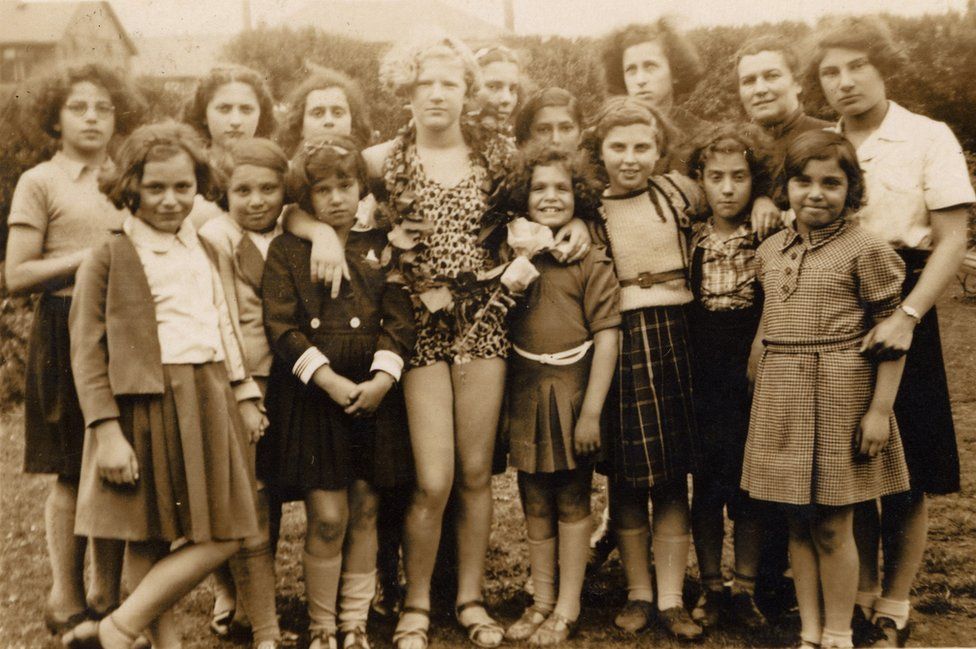THE KINDERTRANSPORTS: THE KTA, THE 80TH YEAR COMMEMORATIVE JOURNEY, AND NEW RESEARCH
Posted on March 18, 2023
Speakers: Melissa Hacker, Wendy Henry, and Dr. Amy Williams
From December 1st, 1938, through September 1st, 1939, nearly 10,000 mostly Jewish children traveled from Nazi Germany, Austria, Czechoslovakia, Poland, and Danzig to the United Kingdom without their parents. This rescue mission became known as the Kindertransport. In 1990, more than 50 years later, a group of Kindertransport survivors in New York City came together to establish the Kindertransport Association (KTA – www.kindertransport.org). This unique volunteer-run organization was founded not solely for survivors, but as an intergenerational group with the missions of connecting these child Holocaust survivors and descendants, educating the next generations on the Kindertransports as an important part of Holocaust history, and supporting and advocating for children at risk today, especially refugees and those without parents.
In 2019, KTA president Melissa Hacker, whose mother fled Vienna on a Kindertransport in January 1939, created and organized an 80th-year commemorative journey. Over two weeks four Kindertransport survivors, now in their late 80s and early 90s, returned to the countries they fled, accompanied by fourteen members of the second generation. Traveling by train and ferry, the travelers traced the Kindertransport journey, visiting memorials, learning from scholars, and conducting family research along the way. Melissa, a filmmaker, will discuss the trip and show excerpts from 256,000 Miles From Home, a new film she has just finished about this trip. She made her directing debut with the documentary My Knees Were Jumping; Remembering The Kindertransports, the first film made on the Kindertransports, which was shortlisted for Academy Award nomination. Melissa consulted on the 2018 exhibit Rescuing Children on the Brink of War, jointly presented by Yeshiva University Museum and Leo Baeck Institute and provided material for Without a Home: Kindertransports from Vienna, a 2021 exhibit at the Vienna Jewish Museum.
Wendy Henry, a JGSNY member and a longtime member of the KTA, will speak about her experiences on the trip. Wendy found family photographs she had never seen before in archives in Berlin and met in London with a member of the Schlesinger family who created the hostel where her mother lived. Wendy’s mother, who was born in Berlin, became an early childhood educator and began working at hostels in Britain with child Holocaust survivors before emigrating to the United States.
Dr. Amy Williams, who spoke with the Kindertransport Journey travelers at the Wiener Holocaust Library in London, will talk about her Kindertransport research. She recently completed her PhD in History at Nottingham Trent University, where she is a part-time lecturer. Her thesis, Memory of the Kindertransport in National and Transnational Perspective, is a comprehensive examination of the different national and international memories of the Kindertransport. Dr. Williams is writing a book on the Kindertransports for Yale University Press and is working with other publishers to produce new publications on their history and memory. Amy works with the KTA and is in New York City for 2023 on a postdoctoral fellowship at the Zolberg Institute on Migration and Mobility at the New School.
Ticket Info:
In-person tickets: $5 general; free for CJH, Leo Baeck, KTA members; registration required here. Free for JGSNY members; RSVP to program@JGSNY.org.
Zoom registration: $5 general admission HERE; CJH members (those who have donated $50 or more in the past year) please email program@jgsny.org and mention that you are a CJH member and would like the Zoom link.
Related Website »




 Number 55 Percy Park looks much like all the other town houses on a well-kept seafront parade in Tynemouth. But more than 80 years ago, it played a small yet significant part in the rescue of Jewish children from the Nazis.
Number 55 Percy Park looks much like all the other town houses on a well-kept seafront parade in Tynemouth. But more than 80 years ago, it played a small yet significant part in the rescue of Jewish children from the Nazis.